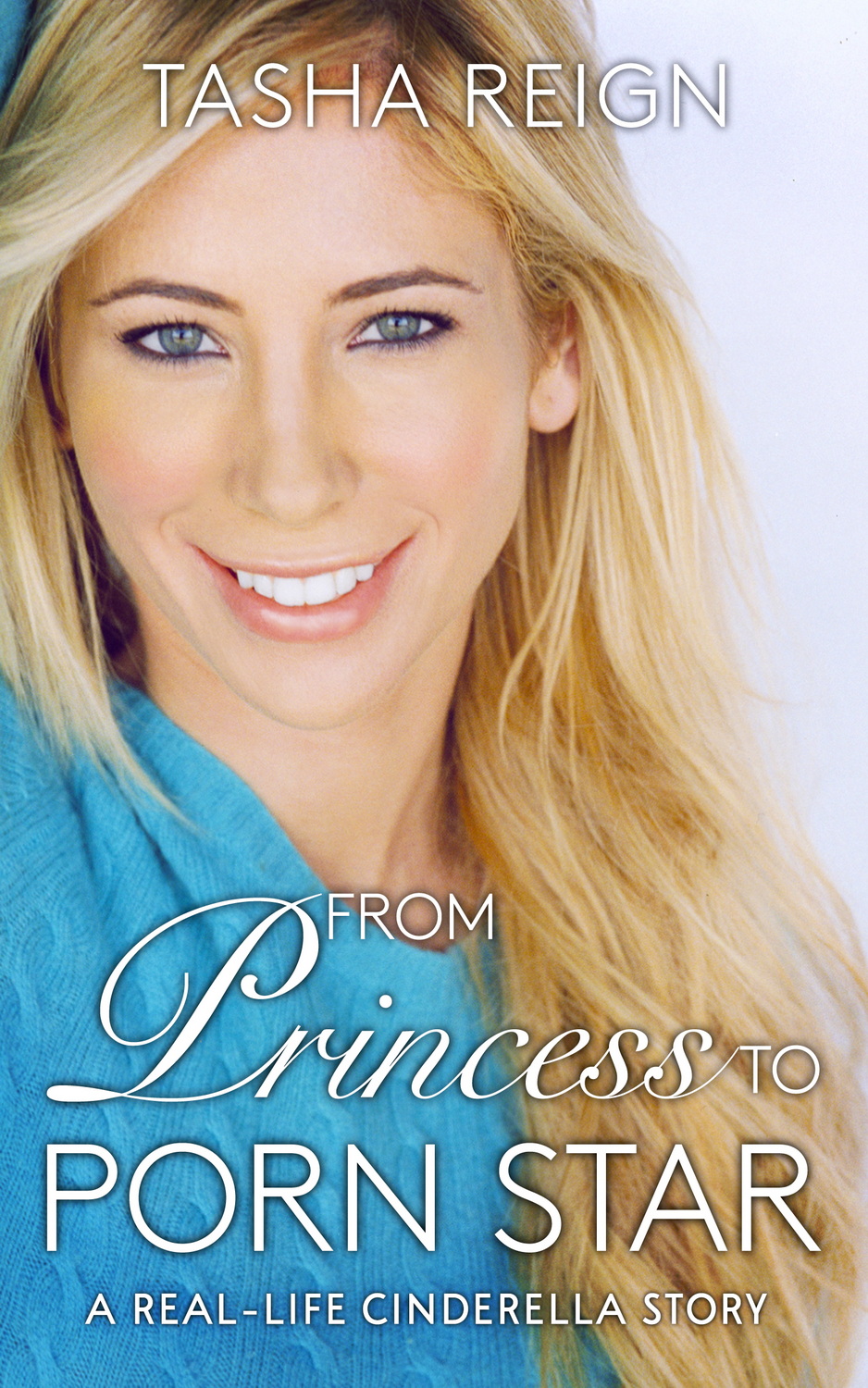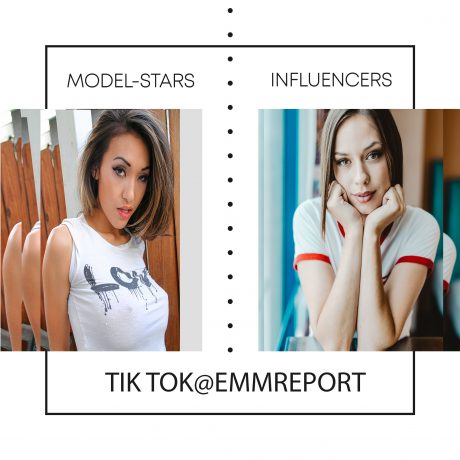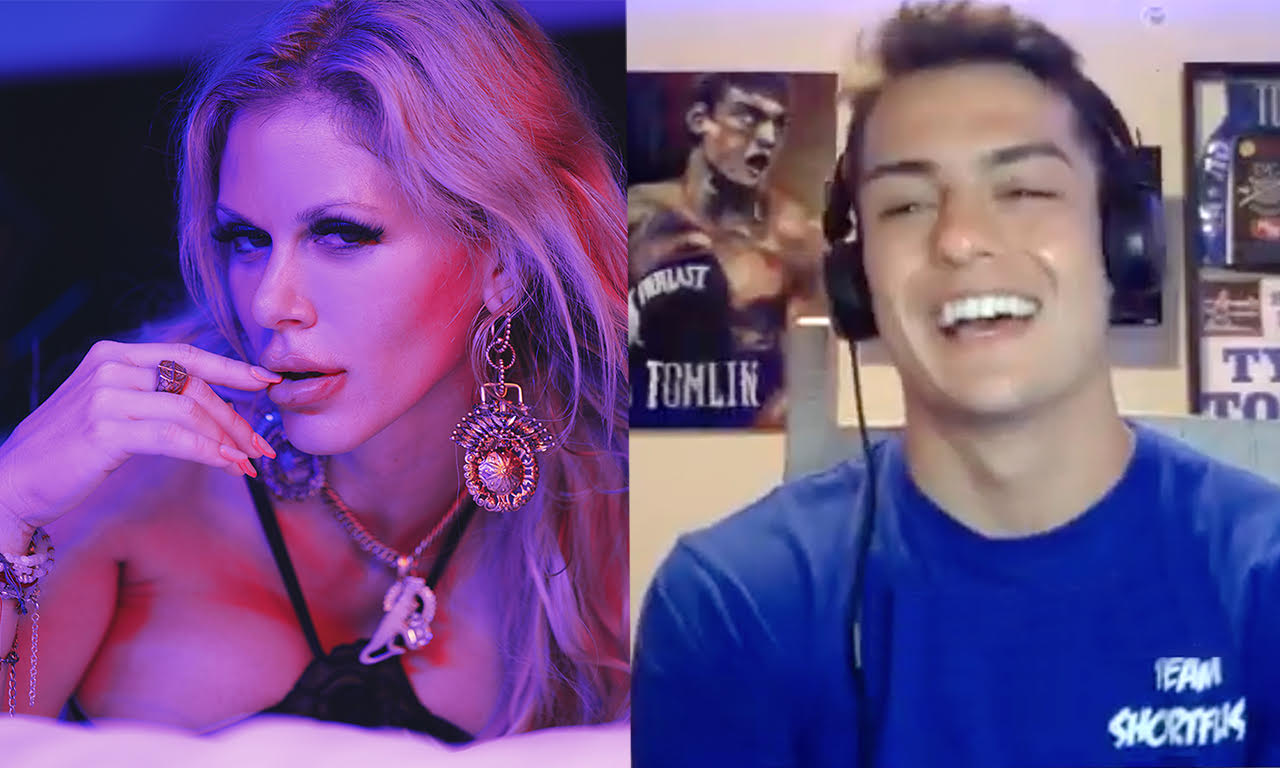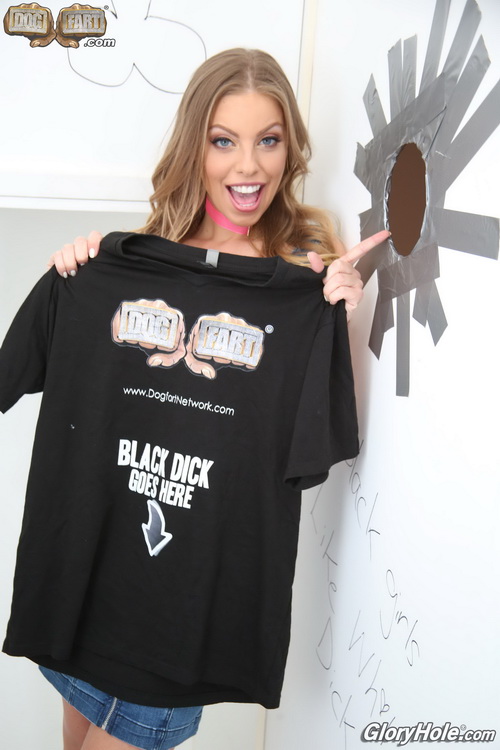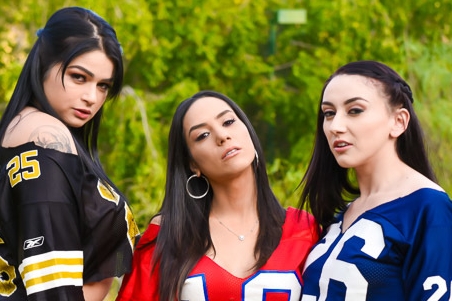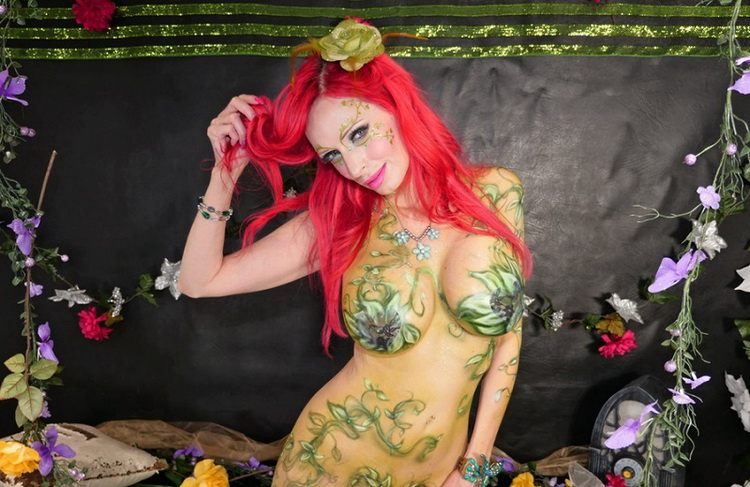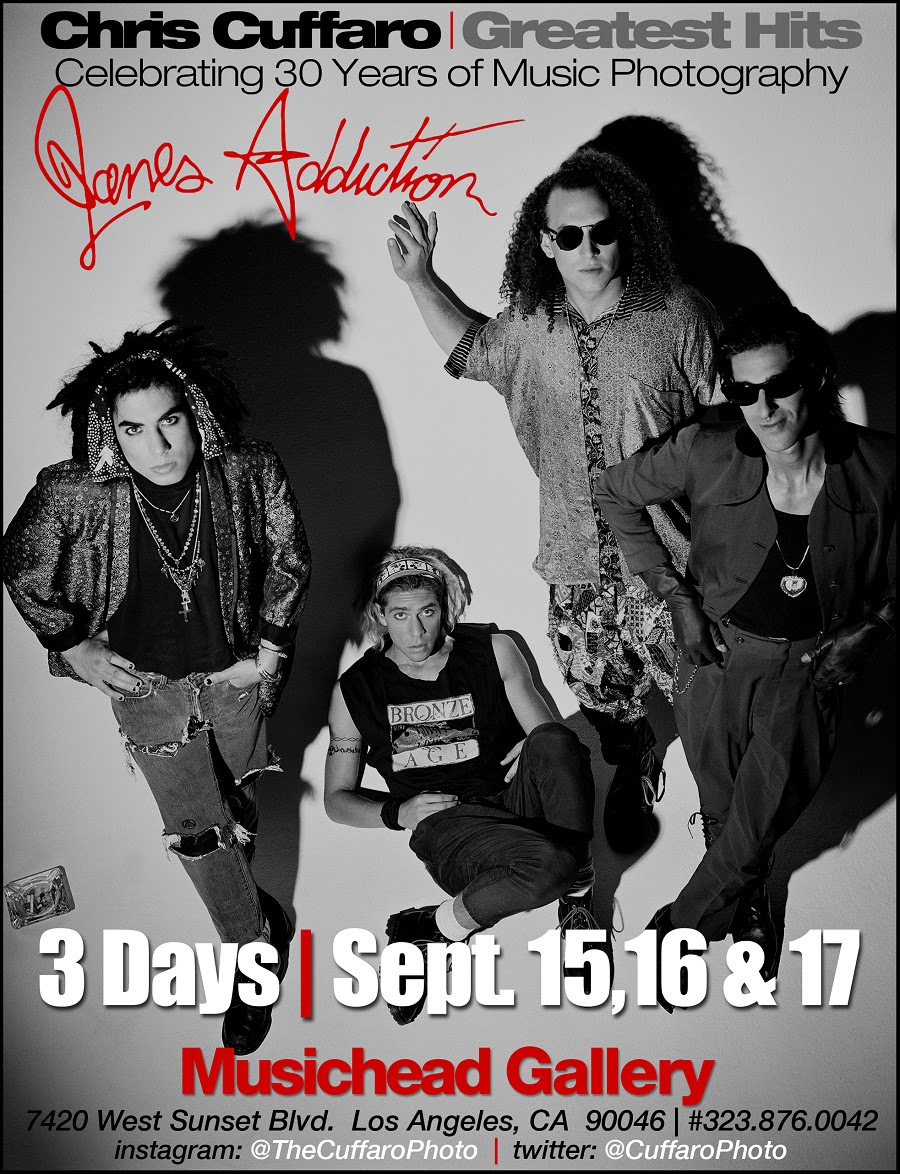FROM PRINCESS TO PORN STAR-A REAL-LIFE CINDERELLA STORY
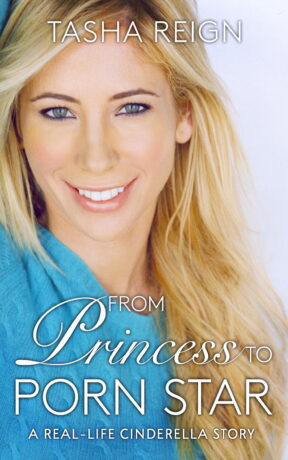
ISBN: 9781627783255 / Price: $18.95 USD
e-book ISBN: 9781627785389 / Price: $17.99 USD Pages: 216
Publication Date: 6/13/23
Buy book from Amazon
In terms of Tasha Reign‘s Adult career, she has had a path like no other. From upscale Laguna Beach, California down to Southern California and Hollywood, this isn’t a good girl gone lost tale. This is an exceptionally intelligent woman‘s story, who sought out the industry, controlled the narrative surrounding her brand, became one of the Industry‘s Biggest stars and decided to share her story, first hand, warts and all. “From Princess to Porn Star” is available now on Amazon.com or Barnesandnoble.com. The audio version will be available on August 15th, 2023. Over the course of 90 minutes, we discover the book in detail, an insiders look at the dark of side of the Adult industry, her never ending personal campaign to support both the industry and, more importantly, the performers who live inside. Teach consent at some of the Biggest Frat houses across America, Racism, motherhood, back to school, life‘s funny twists and turns, Jenna Jameson, and much more.
All Photos courtesy of Tasha Reign
Magazine version of this interview: https://www.dropbox.com/scl/fi/jjetaw9unt5h82qb8l88a/tasha-reign-web.pdf?rlkey=3u25ifnygixzaby0cubqc22pe&dl=0
Photos courtesy of Tasha Reign
SW: What inspired you to write “From Princess to Porn Star”?
TR: I had wanted to write a book for a long time. I had seen or read Akira’s first memoir and I was inspired by that. Then I was encouraged to go back to school for journalism because they knew I was a good writer. I chose a book proposal as my thesis at USC Annenberg. It was actually kind of easy because I had a committee where I could write my thesis. That was a book proposal. I don’t mean easy, but it’s just like, right out in front of you. So when I graduated USC, I had my book proposal, not completed, actually, but I had a lot of it done. And then the process of finding a publisher and everything took a super long time. The actual offering of the book didn’t take that long. The book itself is a couple hundred pages. It actually started out as something I thought it was going to be something completely different. I would have never thought that the focus would have turned to all of this assault and abuse and toxic culture stuff because it’s not actually what I wanted. Unfortunately, when you go to write sometimes, you don’t always have control of what your mind and a pen wants to put on the paper. I mean, my favorite part of the book is actually the beginning. I think it’s really fun and interesting and especially if you didn’t know me. And then I feel like it got into like a dark place and it ends on a positive note, which I think is similar to what you see in American movies and literature. It ends on a happy note. But yeah, I didn’t mean for it to become or be what it was. It was my truth. And so I spoke it. And now we have this book. Published.
SW: At the beginning, when you wrote the thesis? Was that designed to be telling your story of the adult business? Or designed to tell your life story?
TR: the thesis was supposed to be just a book, a book proposal about a memoir. But the memoir took a turn into something else.
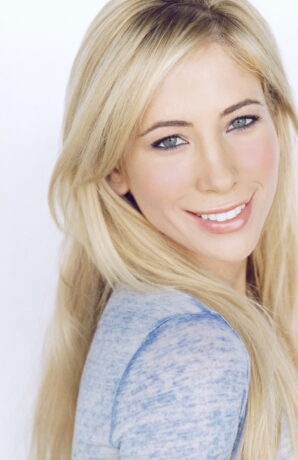
SW: When you sit down to write the book. Do you write it in chronological order? But you just take bits and pieces and then go back and forth like different subjects.
TR: That’s a good question. This is my first book. So I definitely was struggling with the chronological order part, although I feel like it ended up making sense, but there is a lot of jumping forward and jumping back, but hopefully it’s pretty clear. What I like about it is you could pick up any chapter and just read that chapter. I don’t think you really have to read from the beginning to end. Of the book. And it still makes sense because it’s casual.
SW: I got the impression from a couple of different spots in the book that you kind of just scraped the surface on some subjects you were talking about. And maybe you really want to go deeper, but you kind of just walked away.
TR: Yeah, I think you’re right. It’s a cathartic process. Writing in general is something I feel like I’m naturally good at, but when you’re writing about yourself, it’s emotionally tolling. And so I just think I gave what I could, and it’s not to say that I won’t write more. I just you know I think it was pretty kind of painful. Honestly. I did an audiobook of it this last month. And it comes out next month, which I’m really excited about. But I had to read it. I hadn’t really been reading it. Editors would send it back and I would have to glance over it and fix it or crush specific things. But rereading something that you’ve written that is, maybe painful, like a bad experience, it’s just really, really difficult to want to get into the nitty Gritty of anything. But hopefully people will still be entertained and it will keep them wanting more because I think you’re right. I think a lot of things were just scraped on the surface.
SW: Was there any concerns, issues, thoughts that some of the stuff you talked about certain things in the business might be less then flattering to some people?
TR: Yes, some things were edited out for legal reasons. The publisher’s legal team took out a few different things and told me : “this isn’t making the book because we don’t want to get in trouble or whatever”. And we changed everybody’s names. So that was kind of edited down. But when it comes to the few people in the business I did mention, I wouldn’t even say I spoke badly, but truthfully, about them, I definitely kind of made that choice and ran with it because life’s too short.
I’m not doing this to wreak havoc. I actually hope that they don’t even read it. But it’s my story, and they’re part of my story. And it’s interesting. I think there’s not enough books written by sex workers, period. I mean, I should be buying more of them, I own a few of them. I just think the more firsthand stories from a kind of private secretive business is important to put out there into the world. I think it shapes the culture that we live in. So yeah, I definitely thought about it. I felt badly that it might hurt their feelings. But I do think with the people that maybe I didn’t speak so warmly of, I think that I still left warmth in their chapter or their description.So yes, that was hard. I did have a DM from somebody in that book. They didn’t say anything specific other than they bought the book. But I knew what they meant. They didn’t have to say anything. And it sucks, because it is like burning bridges with people if you speak about them and they don’t like what you say. But if you’re a writer, then you’re a writer, and you just kind of have to you know take the hit.
SW: Were there parts of the book that you, maybe made you feel uncomfortable or weird, but you thought that they were important enough to the book that you had to include them?
TR: I felt like, honestly, all of the sexual assault stuff was really uncomfortable. But what was interesting is, that when I had to read the book for audible, my impression changed on certain events. I felt like: That wasn’t so bad, or as awkward and weird and uncomfortable as it was when I wrote it. Or experienced it, which I think means I’m processing it. Which is the most important part of this whole thing is like, am I okay? I’m fine. And I honestly feel like I don’t know if I would feel this sense of relief without having put it down on paper and being able to share it you know. It’s a good feeling to feel like, like a relief of something that was like on my shoulder.

SW: How long did it take you to do the first draft? Was that like the hardest thing for you to do? And then edit it down?
TR: I don’t know how long it took. It wasn’t that long though, it was over time, like first came a few chapters, then the first draft, then a lot of editing down. And back and forth and a lot of deletes, couple of additions. It was back and forth. The thing too is I was pregnant during the whole thing. And so. My pregnancy, I felt like, I can’t say I procrastinated because of my pregnancy, I’ll will never know, but I definitely feel like that took priority, and I was just kind of way quicker with the turnaround and everything {after that}. But yeah, it was it was definitely an interesting process. It’s unique. I’m proud of the book, but I’m also like, like I said earlier, it didn’t come out in the way I thought it was going to.
SW: Did your publishers have anything to do with the way the book ended up coming out {In terms of content}? Did they want more salacious stuff?
TR: They let me control the narrative of the book. That’s what happened. You know, my pen to paper, so to speak, and that’s what came out.
SW: You touched on it briefly in the book, people say writing a book is very therapeutic. The process is good for you. Did this whole process help you understand parts of your life better? Did it clarify anything?
TR: I think the main thing is, I was able to process some traumatic experiences better and now I don’t feel so triggered by them. I’m like, oh, okay. It’s just like something that happened. And that’s the best part. But I also think that, I guess, move forward from even just like the identity that I had about myself in the beginning of the book like. I like that I put it down on paper. And I just feel like. it was very therapeutic and cathartic and trying to think if I learned anything about I mean, I don’t know about. Yes. I actually think I found I was a little more judgmental than I actually knew I was.

SW: You touched on it earlier, were there family members, friends who maybe didn’t like the portrayal of them in the book? Forget the whole adult industry. People you grew up with and just people in general outside of work.
TR: I mean, I hate to say it, but I don’t even think my siblings bought or are reading it. And it’s not because they know about it. It’s all over my personal Instagram. They know, I think they’re not thrilled with the fact that I was so candid. And even though I don’t use their names, if you grew up in the community I did, you know who they are. So I think they’re pissed. But they’re not so pissed that they’re not talk to me at all. And then I haven’t heard from, you know, different characters that may definitely not like when I wrote about them, but also I didn’t use their name. And I’m sure they have seen it. And I don’t care if they have. Reach out to anybody about specific events in your life that happened to get a more roundabout perspective. Particularly what you remember from happening from a specific thing. All of a predator pedophile story of the guy in Mexico. Did I include that in the book? I think I did. I don’t even remember at this point to be honest with you, but yeah, I’m pretty positive because I remember reading it in the audio version, so yes, I went back from emails. To confirm certain vernacular, certain verbiage that people use in an email, and different confirmations of bookings from my old agency. And I fact checked everything to the best of my abilities with the proof and the evidence that I have in my email account. And then when my mom was alive, I asked her for confirmation of certain details.
SW: You mentioned the book living in No lag {North Laguna} and So lag {South Laguna}. Did you ever have the chance to, how do I say this? Go outside of seems like the ultimate dream, living someplace for people where everything is there and it’s super cool and it’s wild and crazy. Then you ever have a chance to maybe go into Los Angeles and see how like middle class people were living.
TR: Not until I was in college, in Santa Monica college. And I was like, holy shit. Where the fuck am I?
SW: You mentioned in the book your mother had let you pretty much run wild and your father treated you like a princess. When you got into adult and you decided to make the “Tasha” character, did either one of those life styles play into that, because, maybe you used to have this type of personality one way and this type another.
TR: It wasn’t easy just to create Tasha and just go forward with it. I always just thought Tasha was an extension of my personality.
SW: You mentioned Jenna Jameson was a big inspiration for you, How did you hear about Jenna or about her book?
TR: I just saw Jenna’s book at Barnes and Noble. The cover was so pretty and I think I picked it up and I read it. I became so infatuated with it and what’s interesting is that in the book there were some really unflattering things about life as an adult actress and I was still like, that makes sense. That looks like fun. I want to do that.
SW: And all of your time in the industry, you’ve never crossed paths with her.
TR: I’ve met her at exotica and signings and stuff. And I had DMed a bunch on Instagram, but I think she’s probably in a different place than she used to be.
SW: But you didn’t meet when you were in the actual industry or did you?
TR: She was retired by the time I got into.
SW: When you read her book, was it more from a educational perspective or did it arouse you at all?
TR :You know what? I feel like this topic keeps getting brought up and I’m like, yeah, it was more of just like I was inspired by that career. I don’t feel like it necessarily turned me on. I just thought, wow, that looks glamorous, and that looks like a fun way to make money.
SW: Was there an award, a movie, etc, where felt you’d established Tasha Reign in the adult industry?
TR: I definitely think it was I think it was when my showcase came out. I don’t even I think it was my first showcase from like a big studio, Elegant Angel. I feel like that was up for best showcase of the year at AVN. And it was nominated for that and for me, that was like, I think for any woman in the industry, if you’re showcases nominated, it’s a really big honor. And I definitely felt like, okay, my brand is out there, with the huge billboards all over the Hard Rock {hotel} of Hard Reign and I think that year I won best performer website of the year for www.tashareign.com. And so I just think that those accolades and the visuals and the advertisements and the contract and everything all made me feel like, I have my brand here, which is cool.

SW: I don’t know that there’s a lot of talk about awards in the book, but did they matter to you? Were they important?
TR: They are important. I also feel like awards are some what determined by people in the business, not always so much by fans, but just a lot of politics in the business too. And so that to me was never like, if I haven’t won it’s not that it doesn’t matter. It totally does matter, but I haven’t really made it a big focus. I think my focus has just been giving my all at work and making sure that you know I connect with my fans and when I was featured dancing, that was a really big part of my life.
SW: You mentioned feature dancing, for you was a good show the biggest extravagant costume and all of that.Or was It was a good show more interactive where you stuck your boobies in a fan’s face. For you, what was a good show?
TR: For me, a good show is just a packed house or a when a lot of people have come out to see me there. So I feel like the club owners have at least got what they paid for, right? They’re advertisement. And then for me to put on a show, it doesn’t have to be a fancy costume. Or even interaction, but just that everybody’s entertained. I just wanted to make sure that the people in the crowd were happy and entertained. And I didn’t feel the need to interact much or to have a fancy costume, but if you have high energy when you come out and you’re excited and you’re enthusiastic, and you’ve put thought into the songs and what you’re wearing and what you’re doing up there, I think that shows and people enjoy that.
And there’s definitely a high that you get when you’re on stage. It’s exciting , especially at a packed, beautiful club, like Sapphire, New York, Manhattan, you just get a certain type of energy and it is so much fun to be up there. I love a club packed with a bunch of finance guys because they’re all like, you know, when they have their they’re suits. And then they get this one minute to relax and enjoy hot women. It’s fun.
SW: You we’re talking about some of the darker stuff that happened in the business. Was there something that happened and you decided, I got to get out there and I got to help people.
TR: I love being an advocate of anything and anybody that I can help. I mean, I struggled, I think in my career with being able to voice my concerns, in my opinion and with finding support to back it up. And after that happens, you’re like, well, how can I help other people? And people would just reach out to me because they’d be like, oh, I read your article or I heard you on an interview or you know, I saw that you spoke out about something bad that happened on set. Well, it happened to me too. How do you have an attorney? And honestly, I’ve tried to help, but I feel like, I’m more of like a liaison. I can help people connect or say what they need to say or at least give them courage to speak out if they need to. It’s so hard because, you don’t want it to be your whole story you know. It’s all part of it.
SW: When you start doing advocacy work and you start reaching out to people for subjects and they don’t want to talk about them, does that surprise you? Or does that, you know problem, something everybody knows about that is going on in this community? Why don’t we approach it or do something about it?
TR: No, I wasn’t surprised that people wouldn’t want to talk about it. That’s the whole reason I had to keep quiet for so long. People still don’t want to talk about it.
SW: Do you think there’s inherent people or issues or that it’s part of the culture?
TR: I think it’s the adult industry. I touched on it in a book, basically it’s like we are under attack all the time for other things that have nothing to do with the topic we’re talking about. And so it creates kind of like this defensive mechanism where we’re like, oh, we can’t perpetuate any stereotype, especially if it’s true. So people just don’t want to feel that type of shame. And I don’t blame them so I have empathy for that. And I get that. But at the end of the day, it’s a legitimate business.I think there is a place to talk about safety in the porn community and people are open to it. And I just I see a lot of positive future things happening. Like I can feel it. I can feel that there’s been like a shift And just the fact that you know consent is just such a big topic on campus today everywhere. It’s amazing. It’s more normalized and mainstream than ever with the pandemic happened happening. And 2020 ending and the new world, it’s like OnlyFans has literally transcended adult.

SW: With regards to issues onside the industry, we see these things from two perspectives I see it from a journalist perspective who covers a movie and you actually live that film being created. And there’s certain things that we’ve both seen that happen over and over and over again, and I would think to myself: there’s gotta be a way to stop this. This is just nuts. And for some reason, it’s just going on for 30 years.
TR: Yes, it’s fucked up. And it has a lot to do with who’s in power. Who’s in control? Men that are unfortunately, the predators. So they you know, have power. I’m not going to name names, that’s the problem. I don’t think it’s the same today as it was even 5 years ago. I don’t.
SW: Do you think these problems are fixable? I don’t mean completely gone, there’s more of an emphasis on paying attention to what’s actually going on than just kind of letting it slide.
TR: Absolutely. Women are the answer to the problem. And I think that more women in charge makes a difference. I think the way that the media treats adult entertainment makes a difference, the way we speak, the words we use, the language we use, the professionalism we use on set. The conversation about consent and ultimately the youth, Gen Z for how annoying they can be, they are way more conscientious than I think even millennials are. So that’s nice because they are in the business and they’re able to advocate for themselves in a way that I don’t think other generations have ever been able to.
SW: Did Onlyfans have a lot to do with that, or is that just something that happened over time?
TR: Oh, I think it’s a group effort.
SW: You touched in the book too about Skin Diamond and racism in the business, do you think they were more racial issues towards the women or the men?
TR: Performers. Because I think they all got screwed all the way around. They didn’t get treated financially , nothing.Having said that,I don’t feel like I can speak about that because I’m not black. So I really only know that surface stuff. I didn’t really feel the need to do it, but I did feel the need to say, hey, I noticed this. Take note, maybe go look into it. I reached out to Skin {Diamond}, or she would reach out to me, not about the book, but we were just talking, and I was talking about that day on set. And she was like, yeah, that was my last day I ever worked. It just really broke my heart. It’s really sad.

SW There were a couple of mentions in the book that maybe some of your scenes weren’t up to what people thought was I don’t know what the hell supposed to be a “great” scene. But do you think most of your fans expected every one of your scenes to be this crazy over the top blood curling you know kill somebody type of scene or people just happy you know watching you do your thing?
TR: I don’t know. I feel like there’s a lot of, it felt like there was a lot of expectation and a lot of commentary, especially in the beginning because like I had said in the book, it’s like you really are putting on a performance and I just thought that you could just go and shoot it and that’s it, like you can go, show up, have sex like you do at home and people will love it. I’m not saying that they didn’t like it. I do feel there was a lot of commentary about the performance, which makes sense, right? It’s a performance. And it’s understandable. And so I corrected it. I was like, okay. I’m going to act. I’m going to act better.
SW: When you start doing OnlyFans, is it still an act or is it going to become real because it’s your gig.
TR: I love OnlyFans because you can just be yourself. You can just be candid. And I think the consumers on Onlyfans like the amateur feel and they don’t care that it’s not a performance.
SW: Over the past, let’s say ten years. Do you think scenes maybe have gotten rougher when it comes to what type of content will be shot? I come from a time when a beautiful woman like yourself, basicly just had sex. Now it’s 17 positions and double anal and flip to go over this way and throw it that way and do all kinds of crazy stuff.
TR: I do think that people’s expectation of what you are capable of as a performer has really risen and not in a comfortable or physically comfortable way. I talked to somebody the other day who was like, oh yeah, I did a double anal, she was like half my size, half my age really very young, very petite. I’m like, what? How? But honestly, to each their own, if you can do those things, that’s amazing. I just personally felt very intimidated because there were things I was asked to do that I would have never done off camera and then to even think about it made me like tense up. Oh, that would be painful.
SW: Do you think fans have, in a sense, become numb to a straight sex scene?
TR: I think you might be right. I think that’s true. I think if you’re giving people this gnarly double triple, crazy anal stuff and you’re doing it all the time, it’s like, I guess that’s kind of what they like. But I’m sure that’s not everybody, because, I like porn. And when I see something super explicit, I’m not like, oh, yeah, I want to see that again. I’m just like, you know, that’s not my taste. So I guess it’s kind of taste driven as well. But if it’s what’s on the Internet and that’s what they’re used to, then yeah, I think you can develop a bad pattern.
But you mentioned OnlyFans and people getting into only fans in the business now. Do you think personality is as important to you getting boned when it comes to that stuff or people just come in to watch you have sex?
TR: I think personality matters, your interaction with people matters. People care.
SW: When you started doing the going to the frat houses and stuff. Did it take you any amount of time for you to get through to them? Because I’m a frat boy and this amazing blond walks in, and she’s going to tell me about consent.
TR: Their president would reach out to me, organize an event, and they wouldn’t even tell them who was coming over. And then they would bring me into the room with a white candle and everybody’s in white and very like ceremonial. And I was like, okay, well, here’s what we’re going to talk about today and why it’s important. I felt most of them were very much interested in the conversation.
SW: Were they nervous, uncomfortable, maybe talking about sex with you? Because not only are you are a woman, but you’re a famous porn star.
TR: I put out an anonymous bowl so they could put their commentary in the bowl and I could read it, and I wouldn’t even know which guy wrote it.
SW: When you were hitting the Frat houses and stuff, was consent the most important thing you tried to get across to people when it came to sex and relationships and everything.
TR: Educate them more. In fraternities, definitely consent was the main topic of conversation because that’s what they struggle with. That’s the problem. They have a lot of situations in the frat houses that end in, unfortunately, sexual assault, but sometimes they don’t even mean to. Which sounds like I’m giving them a free pass, but I’m not. I just literally think that they have not learned about how to negotiate sex. And they find it to be awkward. There’s also alcohol involved and they’re young. So it’s like a horrible combination. So that consent conversation is definitely important. But when it comes to going to universities, I’m guest speaking at Chapman university this year for a couple of different classes. And I’ll definitely touch on consent, but I’ll talk more about the first hand experience of being a porn star or an adult actress because I think people in college are not necessarily like brand new fraternity brothers, but they’re maybe in their fourth year at Chapman university. Talking to them about the humanization of a performer and what goes on. I think is important. But like I said, the world is changing to the point where all these kids have friends that have Onlyfans. So it’s a different breed. I’m not even dealing with 5 years ago, where that wasn’t the case. Now it’s like, I don’t even know what I’m going to talk to them about. I don’t think that it’s something that has a lot of stigma anymore anyway. They’re like, oh yeah, all my Friends are on Onlyfans.
SW: Do you think because adult material is so easily available on the Internet that this generation of I don’t want to say kids, but younger people use porn as a guide to learning sex or what they think sex should be.
TR: Yes, I do. I think that’s the problem ,that I’m trying to figure out because, I mean, it’s not my job to figure it out as I touch on in the book. It’s like a cultural, Parental, college issue. It’s not really even something that I have any control of, which makes my heart break because it’s like, yeah, there’s all these people, all these kids. And maybe their school never talked to them. Maybe more importantly, their parents never talked to them. I think I emphasized that in the book that, as a parent, it’s your job to have these hard conversations with your kid and talk to them about sex and consent and porn. Before porn gets to them, because it’s going to get to them. You got to get in there really quick and be like, hey, this is what’s happening. This is for adults. This is an entertainment field. This is not sex, sex is like, between two people that care about each other. So trying to figure out who {mom or dad} has that conversation and how you have it with your kids is imperative. I’m happy to show up on college campuses and have a conversation, but these conversations actually have to happen now.
SW: Do you feel the industry in general has any type of responsibility, maybe a video clip or something to tell people that, hey, this is fake?
TR: No, because this is a really sensitive topic. It would be great if it was in school, but most people are not comfortable with that because they don’t want educators pushing the sex talk on their children, which is also understandable too. So it’s like, at the end of the day, it’s the parents job to be media literate and then to be able to communicate that to their kids.
SW: Is that {going to frat houses} something you’d still do now?
TR: I still get text messages occasionally from fraternity presidents, as I mentioned in the book, the inner fraternal counsel didn’t like that there was PR around it, they didn’t like that they were being associated with me as a porn star, it was making me feel really under-appreciated for volunteer and advocacy work I was giving them. I asked to be paid when I was going to do a tour of it and the man that was going to do it with me was going to be paid but not me. I was like, “what fuck this? This is crazy.” So now I’m not doing it. I’m not against it. I would totally come back. I just don’t know how we would get past the deep cultural systemic issues of misogyny within that.
SW: Overall, how was your time in the actual business? Was it good, bad, different?What you expected, what you didn’t? Did you feel you got your brand to what you thought it should be? Did you feel like Tasha Reign had reached its potential ?
TR: I want to say overall, good. I think that performance wise, I’m very happy with the content I’ve created, the movies I’ve made, the showcases , all of that. I’m happy with that. I feel even though I’m not on some, you know professional set, pushing out boy girl content now, writing a book is still in the business. I’m still in porn, writing about porn. I still create content on OnlyFans. So I’m happy with the way I left my professional mainstream porn out there, I’m happy with that. I like what I shot.
SW: During our discussion, the topic of Milfs came up, and while the business thrives or is driven by 18 year olds, Milfs seem to be more popular. Do you have a theory for that?
TR: I don’t know the statistics. I just know that, yes, that, either the companies want young girls, or women that they can try to make look older or packages of younger and older women. That’s a mom, there’s not a lot of nuance of just being a woman. I find it fucking fascinating.
SW: But in terms of fans, most of the people we know enjoy watching more established performers than they do the 18 year old. They are great to look at once, but then she’s done double anal the second week in the business , what’s left? You know, what you can do triple anal?
TR: I don’t know. I feel like I’m not really tapped into what the current situation of performers and acts are, but I definitely think that you know, the longer you stay in the business, the more fans you get, and that milfs are definitely more popular.
SW: Your children grow up and eventually you have to have the chat with them about your time the adult business. Will the discussion be: what you did or will the discussion be stay away from it?
TR: No, the discussion with my children will be that this is an art form that is for adults, respect sex workers, and it’s an incredible thing. And it’s very, very unlikely that my own children would want to then become performers. It’s like such a weird niche, most people would never want to do that job. So I’m not worried about that, but definitely I’m going to make them respect it. And understand how important it is for society to have sex workers and to treat sex workers with respect and even if it’s not what I’m doing at that time when I have that conversation, I want them to know about it. When the time is appropriate.
SW: When you were dating, before you had children, did you find people were more interested in being intimate with Tasha Reign or with you?
TR: I definitely feel like in past relationships, people have been intimidated by my career and thought I’m going to perform or become some sort of a porn star in the bedroom, and then have been disappointed when I was like, just laying there, being a normal person. But I feel like I’m past that. The person I’m dating now, I feel like, he sees me for me. We barely even talk about my work. So it’s nice.
SW: From being in this industry, is sex still a big part of your relationship, your life.
TR: Oh my gosh, sex to me is so crucial. So important. You can’t let a relationship just go on without sex and you need to have conversation and communication and open talks about your feelings and so forth.
SW: If someone wants to make a movie out of your book, who do you want to play Tasha Reign?
TR: Margot Robbie.
SW: Through the whole thing, or would there be a different person {or people} at diferent ages.
TR: I don’t know. I think she could pull off all of them personally.
SW: We’ve kind of touched on it thru out this whole discussion, but is there any one specific point you hope to get across to people through the book when they read it?
TR: Yes, I hope that people read the book and are surprised pleasantly surprised with the story and are entertained by it, they are empowered by it, and they were educated a little bit more about the adult industry. I guess, have a little more empathy for adult performers overall.
SW: If People want to buy the book, where can they get it?
TR: Get “From Princess to Porn Star” on Amazon.com or www.barnesandnoble.com .
SW: And the audiobook, is that out yet?
TR: The audio version will be out on August 15th, I’m still doing edits on it. And you will be able to get it through audiobook or www.barnesandnoble.com or Amazon.com.
Thank you Tasha,
be sure to check out
All Things Tasha:
Instagram: www.instagram.com/tashareignslife/
Twitter: www.twitter.com/tashareign
tik tok www.tiktok.com/@princesstopornstar
onlyfans: http://tashareign.tv/
my closet: https://sweeky.com/tasha-reign/
items for sale: https://sweeky.com/tasha-reign/


